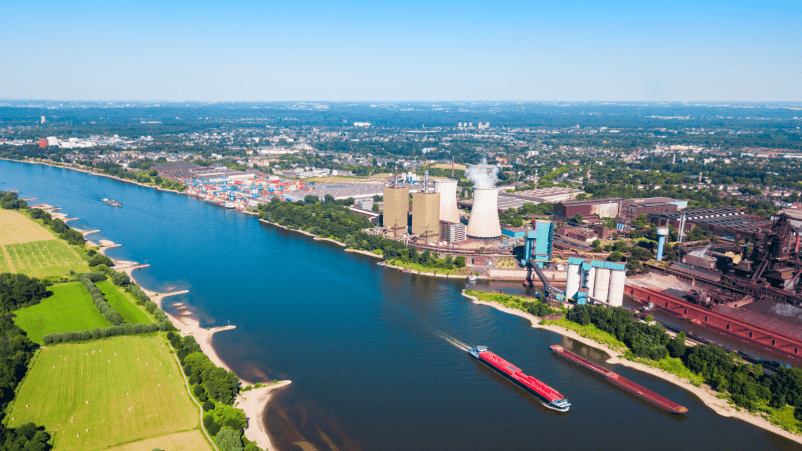Breadcrumb
Look to Germany for best practice to drive forward the green transition
Harvey Chandler reflects on the openness of the German economy to private investment, following a visit to the annual global investment summit in Berlin.

Private infrastructure investors know that Germany is one of the most desirable destinations for investment. Driven by its economic status, market size, openness to private involvement in infrastructure management, and focus on sustainability and innovation, Germany is only growing in attractiveness.
Nonetheless, in recent years, policymakers have faced a challenging set of circumstances. Problems deriving from the impact of the Covid-19 pandemic, the response to Russia’s invasion of Ukraine – and the resulting impact on energy supply chains – and more recently, a ruling by the country’s highest court resulting in multi-billion euro cut to its Climate and Transformation Fund.
The country now faces the challenge of maintaining its ambitious – but deliverable – target of becoming climate neutral whilst ensuring it remains a competitive industrial player on the world stage, manufacturing the green technologies of the future.
These twin challenges are in no way mutually exclusive, and Germany’s approach in the energy sector that maintains a focus on catalysing private investments in renewables and grid upgrades through its 2020 grid transformation plan should be welcomed.
The decision to set out a power plants strategy to account for the shortfall in supply – with 10GW of planned capacity due to come on board by 2030 – is the right one. The fact that these plants will also be hydrogen-ready and using natural gas as the feedstock before the switch over, is also a positive signal to the market of the government’s commitment to drive forward the development of Europe’s hydrogen market. It is also an indicator of Germany’s own plans to have a core hydrogen network in place by 2032.
Despite these positive developments, there is still a need for the country to accelerate its planning and permitting reforms, to ensure they are implemented at pace. Through this action, Germany would be demonstrating best practice and a model that should be replicated in other countries – building on the framework for change set out in the EU’s own action plans in areas, such as electrical grid infrastructure and wind energy.
As we continue to engage across the EU and member states, GIIA and our members are focused on informing discussion over the role private investment can play in helping meet infrastructure needs worldwide.
Germany is no exception, and we remain positive on the approach adopted by the government to ensure private capital – including that managed by fund managers, pension funds and others – has a positive role to play in driving forward the energy transition.
Pictured above: Duisburg-Walsum power station, Germany